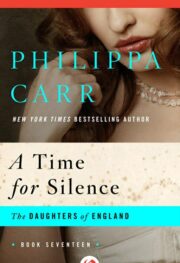Jean Pascal was thoughtful. Then he said, “Edward believes he belongs to you now. Soon he will be asking questions which will have to be answered. What does the world think? Here is a boy whose parents were killed during the bombardment of Mons. You, a young English schoolgirl, who had struck up a friendship with his parents, found him in the garden of the wrecked cottage. You were getting out of France before the German advance and you brought him with you. That is best. His father responsible for the murder of his mother? His mother putting him out with foster-parents, ashamed of his birth? No, no. Let us keep to the more pleasant account. There is often a time for talking, Lucinda, and there is a time for silence. As regards this matter of Edward, it should always be a time for silence.”
I smiled at him. This man who had experienced most things life had to offer was knowledgeable in the ways of the world, and I believed he was right. This was a time for silence.
It seemed a long time before the train came in. The platform was crowded with people, for it was a troop train bringing back heroes from the Front.
A great cheer went up when the train steamed into the station. We surged forth…everyone there, men, women and children, seeking the one person whose return meant so much to them…the end of fear, the new hope in a future no longer tormented by thoughts of war and the fearful desolation of bereavement.
It was some time before we found each other.
And there he was. I saw him a second or so before he saw me. He looked older…a little worn…but there was a wonderful light in his eyes.
Like others on that crowded platform, we flung ourselves into each other’s arms…unashamed of our emotion.
“Robert!” I cried. I could think of nothing to say but his name.
“Lucinda, Lucinda,” he said. “I’ve come home….”


"Time for Silence" отзывы
Отзывы читателей о книге "Time for Silence". Читайте комментарии и мнения людей о произведении.
Понравилась книга? Поделитесь впечатлениями - оставьте Ваш отзыв и расскажите о книге "Time for Silence" друзьям в соцсетях.